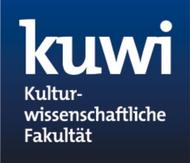Chair profile
I. German-Jewish literary & cultural history of modernity
It is one of the most important tasks of the interdisziplinär zusammenmenzetzetzten Lehrstuhl, a contribution to the rekonstruktion and presentation of German-Jewish literature and culture in the context of the europäish moderne. The breadth of this thematic field reflects the diversity of the teaching and research activities of the chair team: It ranges from the treatment of the work and effects of German-Jewish authors and authors as innovative part of literariculture in Germany (Habilitationsprojekt "Politik und Poetik jüGerman-non-Jewish friendships in German-Jewish literary history since the Enlightenment") üon the development of new research questions on the field of tension between anti-Semitism, Jewish identity and political culture (Habilitationsprojekt "Im Schatten August Bebels").
Positions of German Social Democracy on Anti-Semitism and Zionism (1918-1932)") to the investigation of memory and remembrance after Auschwitz. A regional focus is on aratts on Jewish life in Berlin and Brandenburg (Lehrstuhlprojekte).
II Literary culture of German Jews in Nazi Germany
It is one of the Chair's most important projects, which it has been carrying out for the past ten years;research on the literature of antifaschistiexile, the so-calledinner emigration and to the Nazi literature, a representation of the literariculturture and communication of German youth in the nationalsozialistiGermanland. The project to create a new, written and written history of German-speaking Literatur for the yearsAfter 1933, the German government had a special focus on research and development (Forschungsschwerpunkt).
III Exile, emigration and remigration
In the scientific as well as in the gesellschaftlichen dialog üüber die Zeit des Nationalsozialismus und deren FolThe Lehrstuhl also has a special role to play with its thematical approach to questions of exile. He is interdisciplinrichtet and is involved in both research and teaching;research and teaching deals with the exile of the arts, sciences and humanities. An adquate übernatiole sowie zeitlic Öffnung des Verständnisses from exile into the years of the postwarperiod resp. the Re&migration presents itsne activitäten. He is the bearer of the regionalen charakter of exile and aequal of thesen Zentrenbildungen berücksichtigend, solllen insbesondere Forschungen zu noch immer untoreichendlyclosedsenen regional heavypoints such as the mittel and osteuropäand eastern European countries, the Lateinamerikanic area and the Asiantic area.
At apoint in time when perspektiven, questionsgehorizonte and themenslunches of exileresearchonfallingstet have been a „tion, these is tooimmediately recognised as a „normal science“, deren selfverständnis of a „newjustierung“ bedarf. Against thisbackdrop, the different ways in which thechairworksshouldbe underntheten theoretis viewpunkten new wissenschaftliche questions to the quellen formulieren, – beispielsweise im Kontext of identititätsforschung, interkulturellen and interreligiösen dialogs, the Darstellung jüof the history of civilisation and society, of generresearch, of the culture, history and society of the postwarera. Last but not least, theartige methodische Neuanstze should be integrated into a dialog with entwicklunof the ge&genwrtigenitionsforschung treten (Diskussionsforum "Bewegtes Europa").
IV. Migration research
With itsthird thematitionfocal point in the Migrationsforschung, the Lehrstuhl will not only become a centre of excellence in the Literatursciencessssssssseries "Zwischen()Welten" events) will not only be able to develop a youngplinplin weiter, butbut muchmore in the development of its theomatis theoreticient knowledges of exile and diasporaforresearch;The aim of the programme is to make the knowledge of exile and diasporaforschung fruitful for migrationforschung and vice versa ("Bewegtes Europa" – Offenes Forum Migration und Literatur). It immediately emphasises one of Viadrina's most importantresearchpoints and is intended to provide a themating thenetcation of the variousdener and facultätäten befördern.
V. Visualising the memory of exile and the diaspora
Neben an interdisciplinär fromgerichtet research;and aer forscholnahen teachingre in the beschriebenen BereiThe Lehrstuhl is dedicated to the Visualisierungung und Virtualisierung von Gedächtnis und Erinnerungen des Exils und der Diaspora. The use and preservation of EUV archive (such as, among others the Karl Dedecius Archive) as well as the integration of these institutions into current research programmes, conferences and events;rces, teachingprojekte and öffentliche veranstaltungen are among the tasks of the Lehrstuhl.
As a pilotproject, the DFG-funded work on a „digital archive of jüdirinrinnennen and Autoren in Berlin 1933-1945“ (DAjAB) began in May 2014. An "Online-Lexikon jüdischer Aurinnen und Autoren im nationalsozialistischen Deutschland" (OLjA) is planned. The Lehrstuhl is thus continuing its efforts to promote the documentation of verfolThe organisation of the proceedings of young women and men innerhalf of GermanywähDuring the time of the Nationalsozialismus on a virtueller level and can thusand in the future will be able to present an unrivalled collection on the Viadrina.
In its öffentlichen Wirken, the Lehrstuhl should become an activen stimme in the gesellschaftlichen dialog über Gedächtnis, Erinnerungen, Literatur and Geschichte becomeden. It should be interreligiösen and interculturell dialog, e.g. with the do&cumentation and education of ethnifolgins, for a greater tolerance and an erweitert understanding of the gesellschaftlichen coanander werben.
